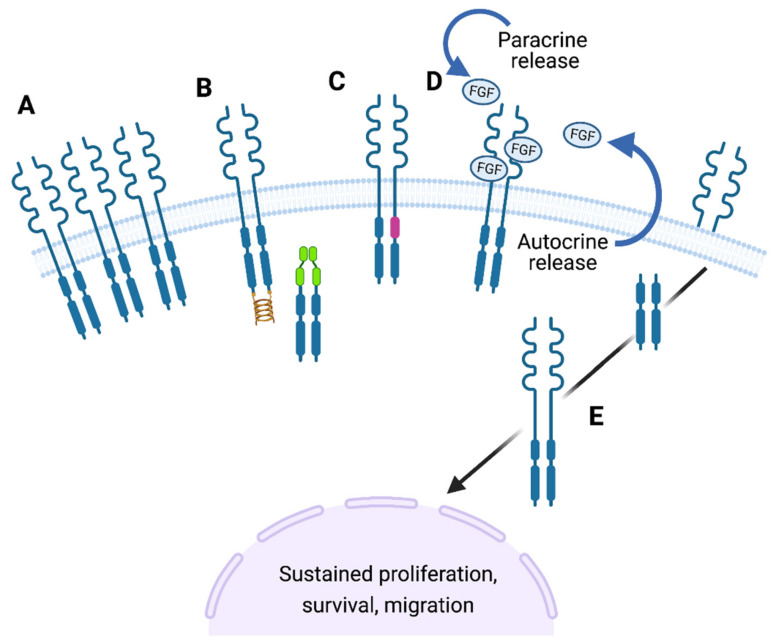Figure 3.
FGF signalling pathway alterations in cancer. The FGF signalling pathway can become altered in a number of methods in cancer to cause sustained cell proliferation and survival: (A) Overexpression of FGF receptors cause ligand independent activation, e.g., FGFR2 in gastric cancer. (B) Receptor translocations can occur also leading to ligand independent activation of signalling, e.g., FGFR N-terminal fusion with transcription factors (green) or C-terminal fusion with TACC (Transforming Acidic Coiled Coil) proteins (gold). (C) Activating mutations (pink) within the FGF receptors cause constitutive activation even in absence of the ligand, e.g., FGFR2 in endometrial cancer. (D) Paracrine or autocrine overexpression of FGF ligands can lead to increased FGF signalling, e.g., FGF1 in ovarian cancer. (E) Sub-cellular translocation of either the full length or a cleaved version of the receptor can occur, for example to the nucleus where it could act as a transcription factor, e.g., FGFR1 in pancreatic or breast cancer [28,29]. Created with BioRender.com.

